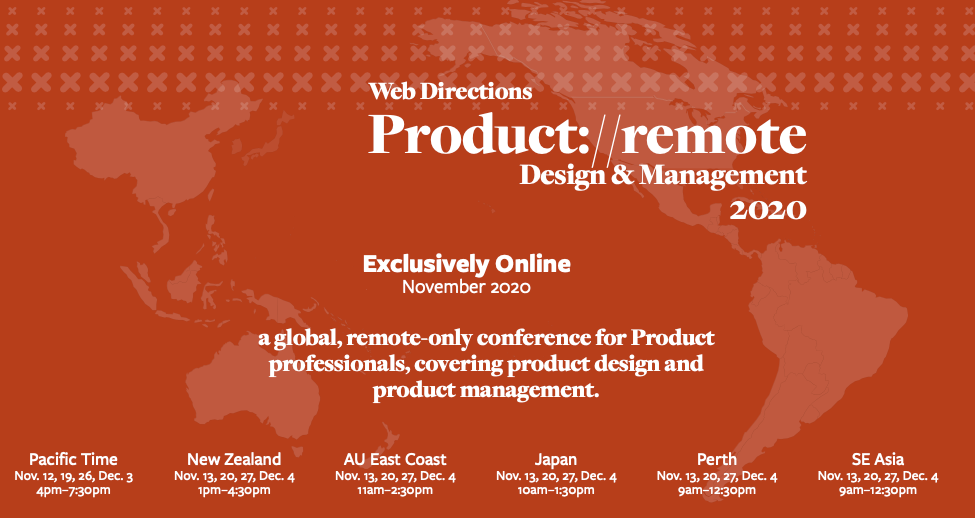Ethics at Product://Remote
a quick heads up–this piece mentions some challenging ideas and events, episodes of online harassment, references to lynchings and genocide. If you find these ideas difficult, or distressing, you might wish to skip this email
In public schools in NSW, 30 minutes a week is still dedicated to the teaching of “scripture” (everyone calls it that, though officially it’s Special Religious Education.
A decade ago, after many years lobbying, Ethics was introduced as an option for those who did not want their children to participate in a religious class.
For 3 years now I’ve been teaching ethics at my daughters’ school. The classes challenge participants to develop, question and refine their ethical intuitions, and consider why it is we think certain kinds of behaviour are acceptable, or unacceptable, desirable or undesirable.
Kids and their families need to opt in, and depending on the school, a small percentage, all the way through to a majority of kids take these classes.
If I think back to my (admittedly now distant) education (and my entire school education took place in religious schools), while there was a strong focus on morality, there was little if any focus on whysomething is good or bad–it simply was (as handed down by ancient texts, or entirely male institutions, which continued to expel from the institution those who challenged its precepts).
Ethics is not simply set of rules we learn and apply. What behaviours are intrinsically good, and which intrinsically bad.
Even for those just starting school they’re challenged to question why it is they think that way, to consider dilemmas, conundrums, and seeming paradoxes. To challenge their ethical intuitions.
If you’ve attended any of our conferences in recent years, you’ll have noticed ethics have been a central concern of our programs. Over the last 15-20 years, the technology industry, and our faith in technology’s inherent worth, this idea that somehow it is intrinsically a force for good has come to be seen as (at best) naive. The wild optimism of the rise of social media as seemingly a benign, overwhelmingly positive force for social cohesion and connection, has fuelled and enabled election interference around the world, lynchings and frankly genocide.
Who knew? Well, as always, marginalised people, women, people of colour. So much of this was evident, and yet we ignored or downplayed these voices.
In 2007, I had the privilege of being invited to speak at the Web 2.0 conference in San Francisco. It was right around the time that one of the earliest high profile cases of online, networked harassment was occurring.
Far too few people these days will recognise the name Kathy Sierra. Kathy is an author, and creator of the Head First series of books for O’Reilly publishing. A fantastic and engaging writer and public speaker, she was a high profile woman in technology when there were really very few. Sierra had been receiving online death threats since 2004 (she wrote in detail about the experience in her blog Serious Pony 10 years after those initial threats).
In 2007, the abuse and harassment became networked, weaponised, coordinated by someone whose name I won’t deign to even mention. At the conference this was a constant topic of hallway conversation. Sierra had in essence withdrawn from public life due to repeated, graphic death threats, but there was in many of those conversations a lack of outrage. A sense from many I spoke with that there were those who were over reacting to behaviour that was “for the lolz”.
The perpetrator is now a well known and avowed neo-Nazi. He weaponised the early stage social media, long before it had reached global scale.
We were warned. We simply didn’t listen. When Twitter and Facebook were little more than MVPs if that, we had clean and irrefutable evidence for how they could be weaponised.
A couple of years back Stephanie Troth in Influencing Decisions with Design Research at our Design conference (the forerunner of our upcoming Product://Remote conference) quoted Tom Stoppard’s play Rosencrantz and Guildenstern Are Dead.
Rosencrantz and Gildenstern are minor characters in Hamlet, but Stoppard makes their story central in this retelling. Charged by the King to take Hamlet to England, where his death awaits, Hamlet outwits his erstwhile friends.
And then, standing on the gallows, one observes to the other
There must have been a time, in the beginning, when we could have said – no. But somehow we missed it
Rosencrantz and Guildenstern Are Dead
With the harassment of Kathy Sierra, we could have said no, but we missed it. With Gamergate, we could have said no but we missed it. At countless times in the last 15 years, we could have said no. But we missed it.
It’s often at the beginning, where investments have yet been made, costs not yet sunk, careers not yet aligned with decisions, that we can question, reconsider, take a different path. And this is as true of the products we design and build, the features we add to our products.
This is the value, power and importance of ethics. And this is the time to make these decisions, to do the hard thinking about what are we doing. To ask “why”, “why this way”, “what negative outcomes might come from these decisions and choices that I am making, or facilitating or not challenging”?
While this has always been important, if anything it’s even more now, as we struggle with the impact of COVID19 on so many things we have come to take for granted, to address the resurgence of Black Lives Matter, the irrefutable re-emergence of Fascism on the global stage.
Many things will need to be rebuilt, new things built from scratch. Exhausted as everyone is (and I have never been more exhausted in my life), it is a beginning of sorts. Let’s not miss this time to make better decisions.
Consider this more at Product://Remote
At Product://remote we have one of the 4 sessions devoted broadly to this area. We ask “Who’s homeless because of what I designed?“, look at a case study in Telco Fraud, consider ask what is is to design responsibly during rapid technological change, investigate Design Patterns for building Trust, critique the wide spread use of patterns associated with gambling and additive behaviours, and more.
If you think this stuff matters, please join us.
Until October 16th it’s just $195–we believe an incredible bargain for world class content, connection, conversation and community. Our first remote conference was an incredible success, and we’d love to see you there.
Some Reading and viewing on Ethics
Here are a few things to read, people to follow, watch and otherwise engage with if you want to think more about the ethics of your practice.
Sara Wachter-Boettcher
Author of Technically Wrong, Sexist Apps, Biased Algorithms, and Other Threats of Toxic Tech and Design for Real Life with Eric Meyer.
Eva PenzeyMoog
Works on financial inclusion and the banking system,
She spoke on Designing against Financial Abuse At Design in 2018.
Jon Bell
Was on Twitter’s abuse team as a designer, he spoke about this work at Design 19
Laura Summers
has created Ethical Litmus Tests, a “game” you can play with your team (or clients). She’s speaking on the Ethics of a Telco Fraud at Product://Remote
And a few more presentations from recent conferences on the topic.
Aaron Z Lewis
Metaphors we believe by: the pantheon of 2019
Gretchen Anderson
Designing smart things: Balancing ethics and choice
Josh Kinal
Design Ethics: Integrating your values into the things you build
Joe Toscano
Inducing Ethics: Why the Internet Needs to be Regulated and How We Can Do It
Holger Bartel
The Untold Benefits of Ethical Design
Oliver Reichenstein
Philosophy, Ethics and Design
Karolina Szczur
Disruptive or defective? Towards ethical tech innovation
Cennydd Bowles
Ethics in the AI Age
Stephanie Troeth
https://conffab.com/video/influencing-decisions-with-design-research/Influencing Decisions with Design Research
Hilary Cinis
Crafting Ethical AI Products and Services – a UX Guide
See two dozen world-leading experts on all product design, management and ownership at Product://Remote November 2020
Product://Remote takes place across the month of November (and just a bit of December), and features two dozen world-leading experts on all things product designing management at an amazing price, just $195 before October 16th.
Conveniently timed for attendees from the North American West Coast, right across the pacific to Hong Kong and Singapore, Japan and beyond connect–with your peers at Code.

Great reading, every weekend.
We round up the best writing about the web and send it your way each Friday.

